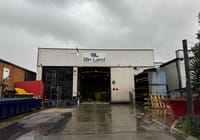
Duke of Westminster's Grosvenor benefits from Australian property
The Duke of Westminster’s privately owned international property operation Grosvenor has delivered a better than expected £79.2 million ($134 million) profit and with strong gains out of its Australian portfolio is looking to further its investment here.
The company based in Grosvenor Street, Mayfair, London, owns among other investments a stake in an office tower at 320 Pitt Street, Sydney, which is for sale and expected to reap up to $280 million – well above its $220 million book value of last year.
The company, owned by the world’s richest man under 30 – Hugh Richard Louis Grosvenor – the 7th Duke of Westminster, produced a better-than-expected 8 per cent return for the year from its portfolio, which spreads across the world from Stockholm, Washington and Suzhou Riverbank, in Shanghai.
But it was Australia which produced one of the better returns, the group exiting one of its investments, alongside locally listed group Propertylink, at a return of 27 per cent.
Grosvenor Group managing director for indirect investments Chris Taite highlighted the strength of its investments in Australia.
“The stability of the Australian economy and growth in key markets continues to provide a steady flow of potential new opportunities,” Mr Taite said.
“Grosvenor’s existing investments with Propertylink, in both 320 Pitt Street and North Ryde, are well positioned given the current strength of the Sydney office market. The Sydney office market in particular has a combination of tightening supply and attractive real yields in global terms. This dynamic is serving us well given our Sydney office exposure.”
In total, Grosvenor has invested close to $110 million of equity in Australia in three separate deals since February 2014, covering the industrial, logistics and office markets.
Grosvenor’s Australian investments now include a $20 million stake in the Propertylink Office Partnership 2 and a $40 million stake in the Propertylink Office Partnership 3.
Mr Taite said Australia provided a mature transparent commercial property market and some insulation from volatility in worldwide investment markets.
“On a global scale, positive yields in Australia remain appealing to the international market,” he said.
“This should maintain capital values for a while to come. Furthermore, the general lack of new supply since the last cycle means that the occupational market is still sufficiently tight to be confident that rents will hold up well.”












